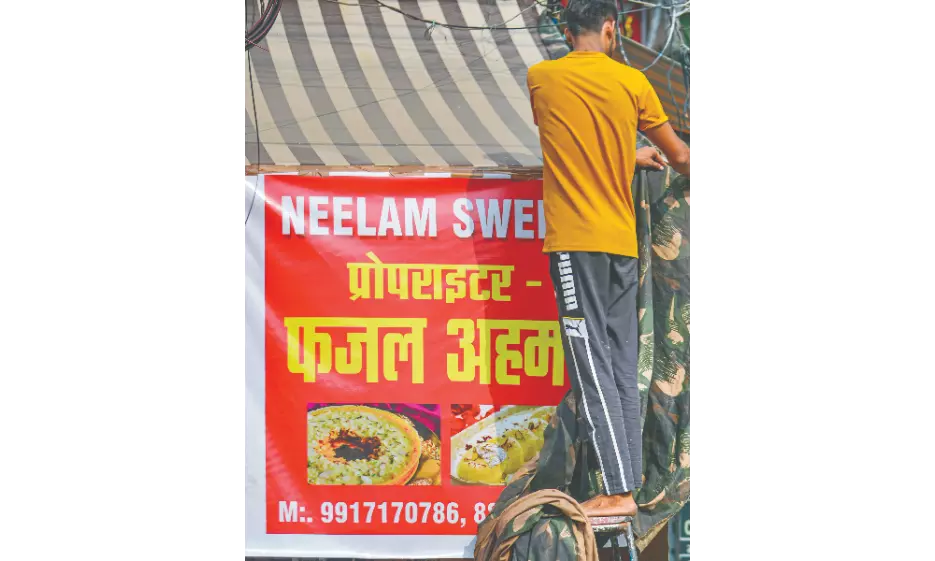SC stays Kanwar Yatra directives to display eateries’ owner names

New Delhi: The Supreme Court on Monday ordered an interim stay on directives issued by the BJP-ruled states of Uttar Pradesh and Uttarakhand that required eateries along the Kanwar Yatra routes to display the names of their owners and staff. The Opposition has criticised these directives as promoting religious discrimination.
Issuing notice to the governments of Uttar Pradesh, Uttarakhand, and Madhya Pradesh — where the Ujjain municipal body has issued a similar directive — a bench of Justices Hrishikesh Roy and SVN Bhatti stated that eateries may be required to indicate whether they serve vegetarian or non-vegetarian food, but not to disclose the names of their owners or staff.
During the Hindu month of Shravan, many devotees travel carrying holy water from the Ganga to perform ‘jalabhishek’ of Shivlings. Many abstain from consuming meat during this holy month.
The significant order comes amid growing controversy over the directives, with BJP ally Rashtriya Lok Dal (RLD) joining the Opposition in calling for their withdrawal. Opposition parties plan to raise the issue in Parliament, alleging that the orders are “communal and divisive” and target Muslims and Scheduled Castes by forcing them to reveal their identity. The BJP argues that the step is necessary for law and order and to respect the religious sentiments of pilgrims.
“We deem it appropriate to pass an interim order prohibiting the enforcement of the above directives. Food sellers may be required to display the type of food they serve, but must not be forced to display names of owners or staff,” the bench stated, setting the matter for further hearing on Friday.
No representatives from the state governments appeared in the Apex Court on Monday.
The court was hearing a batch of pleas, including those by TMC MP Mahua Moitra, academician Apoorvanand Jha, columnist Aakar Patel, and the NGO Association of Protection of Civil Rights, challenging the directives.
Senior advocate Abhishek Singhvi, representing Moitra, argued that the orders were a “camouflaged” form of exclusion by identity and unconstitutional. Senior advocate Chander Uday Singh, representing the Association for Protection of Civil Rights, added that while state authorities claimed the order was for voluntary compliance, it was being enforced coercively without statutory backing.
The bench, however, noted that the orders also have dimensions of safety and hygiene. Singhvi pointed out that Kanwar Yatras have been a tradition for decades, with people of various faiths supporting Kanwariyas. He questioned the rationality of disclosing names, which he argued was done without legal authority and created an economic boycott against Muslim and Dalit employees.
Referring to the Food Safety and Standards Act, 2006, Singhvi submitted the law does not prescribe owners to name their eateries after their names.
Senior advocate Huzefa Ahmadi, appearing for the petitioners, submitted that a public notice had been issued by Uttar Pradesh authorities. Moitra’s plea before the court argued that the orders aggravated community discord and forced disclosure of religious identity under the pretext of dietary choices.
The plea alleged that the directives aim to create a socially-enforced economic boycott of Muslim shop owners and workers, threatening their livelihoods. The Uttar Pradesh government extended the controversial order across the state after the Muzaffarnagar police initially required eateries along the Kanwar Yatra route to display owners’ names.
The month of Shravan begins on July 22 this year and lasts until August 19.



